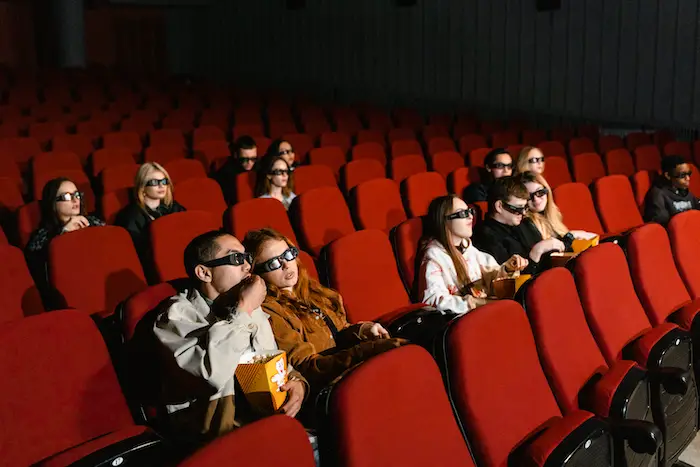
Reviewing classic and influential films is a great way for students to develop their critical thinking and writing skills that will help them write your college paper more effectively. When you analyze a movie that has stood the test of time, you learn to appreciate the craft of filmmaking while sharpening your ability to communicate insights and opinions. However, reviewing legendary films also presents some unique challenges.
As a student, how do you bring a fresh perspective to movies that have been studied and debated for decades? How can you demonstrate expertise while still allowing your authentic voice to shine through? These top tips will guide you through the process of writing engaging, insightful reviews of timeless films.
Do Your Research
Before you start writing, research the historical context, production details, and existing critical commentary surrounding the film. Read reviews from respected critics, both contemporary and modern. Note their perspectives, but don’t let them overshadow your own interpretation and analysis.
- Look into the film’s production history – budget, shooting schedule, directorial vision, etc.
- Study the scholarly articles, essays, and books analyzing the film’s deeper meanings.
While research is crucial, don’t get bogged down in minutiae that bogs down customers seeking the best dissertation service. Your review should be anchored in your personal reaction and assessment as a modern viewer.

Find Your Unique Angle
Since these films have been picked apart countless times over the years, look for a fresh way to approach your analysis. Consider perspectives or elements of the movie that have been relatively unexplored by previous critics.
- How does the film reflect or comment on the era’s social/cultural climate?
- Does the source material (book, play, etc.) add extra layers of meaning?
- Examine the technical craft – cinematography, editing, set design, etc.
You don’t need to be groundbreaking, but aim to give readers new food for thought.
- Look at how the film’s groundbreaking techniques have been imitated or built upon.
- Analyze the movie’s influence on later works within the same genre.
Be Honest About Your Reaction
Don’t shy away from voicing your personal opinion, whether you loved or hated the film. Ground your criticism in specifics from the movie itself, but own your subjective experience as a viewer.
- “While the cinematography was brilliant, I found the pacing extremely slow.”
- “The acting fell flat for me, especially in the third act climax.”
Just be sure to substantiate your points. Anyone can say “I loved it” or “It was boring,” but great reviews articulate why.
Put the Film in Modern Context
While respecting the film’s legacy, don’t be afraid to view it through a contemporary critical lens. How do the themes, characters, or storytelling resonate (or not) with modern values and perspectives?
- Are there any problematic elements that were unchecked at the time?
- Do the film’s strengths or flaws reveal the era’s blind spots?
- How has the cultural impression of the film evolved over time?
This can make for fascinating analysis and show your ability to think critically.

Discuss Both Arthouse and Mainstream Films
When given the option for your review, don’t automatically gravitate towards the most acclaimed “important” films. Plenty of mainstream classics are also worthy of intelligent critique.
- Look at how a blockbuster hit elevated and influenced its genre.
- Examine how a popular comedy holds up today – which jokes aged poorly?
- What made a seemingly simple story into a cultural touchstone?
Analyzing a widely beloved favorite can actually make your insights more relatable.
Have a Clear, Focused Thesis
Like any good essay, your review needs a clear central thesis or argument that you support throughout. An aimless, meandering review that just summarizes the plot will quickly lose the reader’s interest.
- “While XYZ is rightfully acclaimed, the film’s treatment of female characters has not aged well.”
- “Despite its iconic status, ABC actually holds up better as a time capsule than as impactful art.”
A tight, debatable thesis gives your review a backbone and purpose.
Use Tangible Examples and Descriptions
General plot summaries and vague commentary will fall flat. Instead, lean on specific examples, scenes, character moments, and directorial choices to illustrate your analysis.
- “In the diner scene, the cinematography’s use of claustrophobic close-ups amplifies the tension.”
- “The third act fell apart due to inconsistent character motivations, such as when Joan made the inexplicable choice to…”
Vivid, tangible references make your observations more convincing and impactful.
Keep it Concise and Readable
While you want to explore your insights in depth, don’t let your reviews turn into bloated, academic-style papers. Aim for a conversational yet authoritative tone, breaking down your analysis into tight, digestible chunks.
- Use clear topic sentences to begin each paragraph’s new idea.
- Keep sentences and paragraphs to a reasonable length.
- Simple, descriptive language often makes the strongest impact.
The goal is for your review to be information-rich yet engaging throughout.
Share Your Passion
Ultimately, the most compelling film reviews – even of the most studied and revered classics – convey the writer’s genuine enthusiasm and emotional connection to the material. Don’t just analyze the film through a clinical, detached lens.
- Discuss what specific moments, characters, or themes resonated with you personally.
- Reflect on how the film broadened your perspectives or sparked new ideas.
- Share why you believe this specific film has earned its timeless status.
By letting your passion as a true film lover guide your insights, your review will be far more impactful and infectious to readers.
Writing reviews of cinema’s most legendary, era-defining films can feel like an intimidating prospect for any student critic. After all, what new can possibly be said about movies that have been meticulously scrutinized for generations? But it’s that very challenge that makes the exercise so rewarding.
By researching thoroughly, finding your unique angle, analyzing with modern contexts in mind, and prioritizing honesty over empty faux-profundity, you can author fresh and compelling reviews. Most importantly, don’t lose sight of why you were drawn to analyze these great works in the first place: A timeless film kindles an personal reaction and passion within every viewer. Sharing that passion through thoughtful, well-argued reviews is not just good practice – it’s a way to ensure these landmark pictures remain vital for future generations as well.
